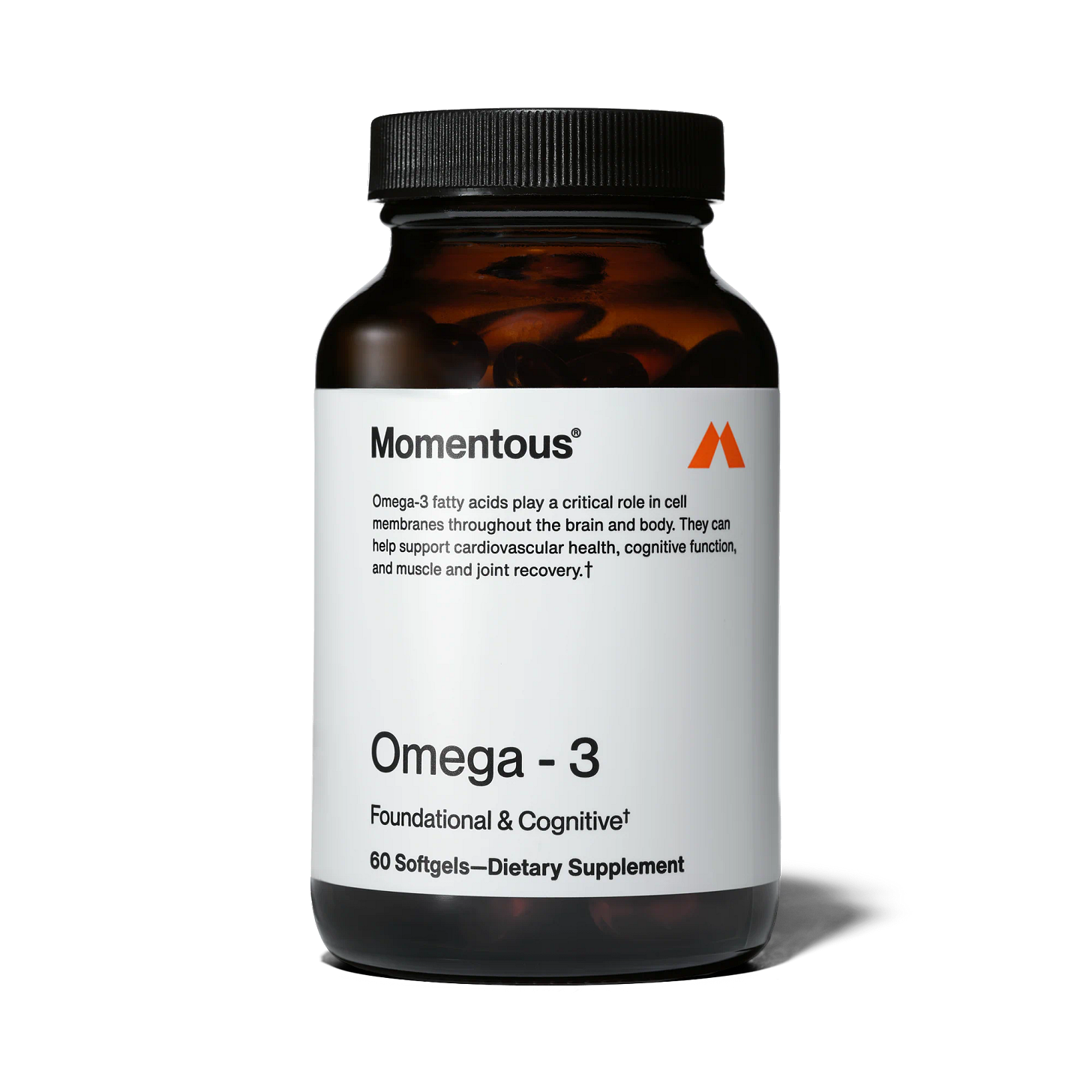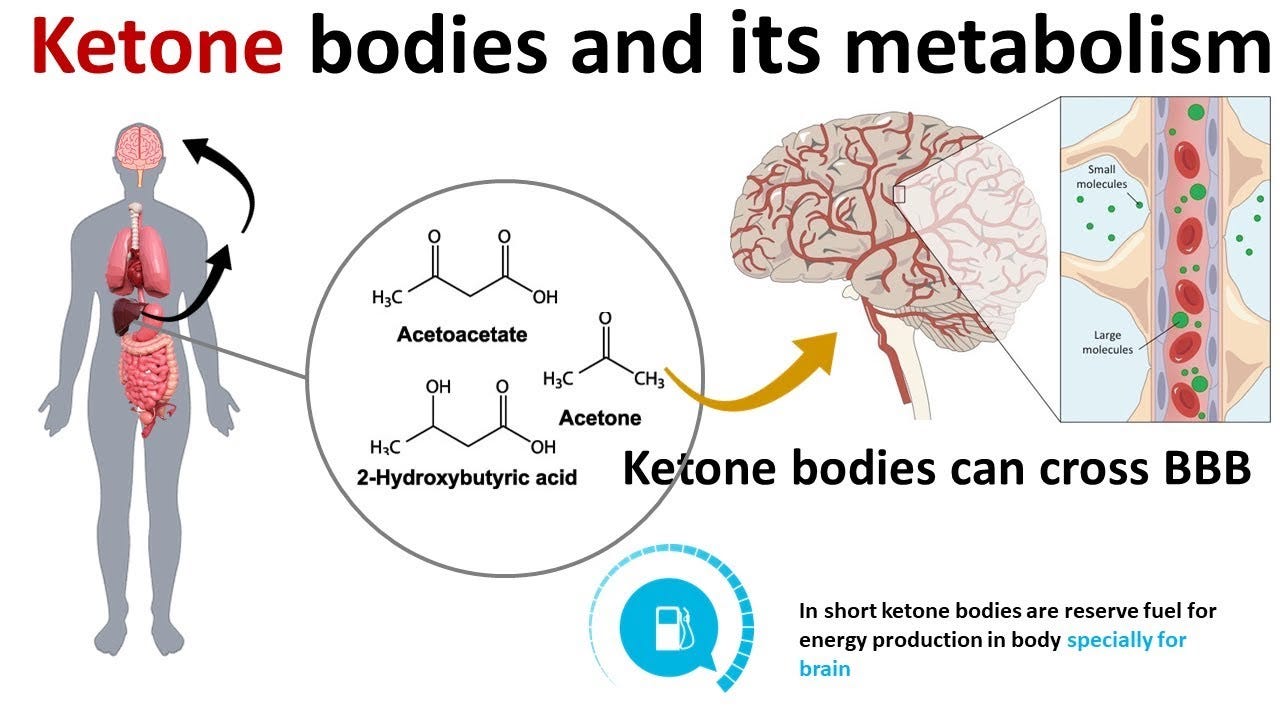Neuro Athletics is a 2 x weekly newsletter that breaks down the medical and scientific practises that you need to perform at your peak. Subscribers include professional athletes, athletic trainers, coaches and casual fans. So if you are not already a subscriber, sign up and join 69,000+ others who receive it directly in their inbox each
Story at a Glance:
Ketogenic diets enhance brain energy metabolism, potentially preventing Alzheimer's disease and improving cognitive function.
Ketones like beta-hydroxybutyrate (BHB) combat neuroinflammation and support brain health.
Emerging evidence suggests ketosis may also inhibit the growth of aggressive brain cancers like glioblastoma.
Neuro Athletes,
Imagine this: You're diligently feeding your brain what society deems healthy—whole-grain cereals, fruits, and oatmeal—but what if these seemingly healthy choices are quietly starving your brain cells?
This provocative idea challenges conventional wisdom around nutrition and brain health. Could switching to fats over sugars really be the secret to preventing Alzheimer's disease?
According to Dr. Chris Palmer, MD, a Harvard psychiatrist known for his bold stance on diet and mental health, the ketogenic diet's power lies in resolving a fundamental "energy crisis" in the brain. He argues passionately that this diet isn't merely another fleeting trend—it could fundamentally reshape how we approach cognitive decline, Alzheimer's prevention, and mental health.
Today’s Newsletter Is Brought To You By Momentous
I've incorporated Momentous Omega-3 into my daily regimen to boost brain function, enhance overall well-being, and support heart health. One of the standout benefits of omega-3 is its ability to support cognitive health and reduce the risk of age-related cognitive decline.
As we age, particularly around 40, many of us begin to notice a decline in memory and mental sharpness.
By supplementing with omega-3, you can maintain cognitive health, improve mental clarity, and support brain function as you age.
And here’s the best part—Momentous offers an unparalleled commitment to quality. With strict third-party testing and partnerships with top experts, it’s the trusted choice for elite athletes and health professionals alike.
Try Momentous Omega-3 today and give your brain and body the support they deserve.
Code: NEURO for 20% off
More Than Just Calories
Your brain primarily runs on glucose, but in Alzheimer's disease and other forms of cognitive decline, this traditional fuel source becomes significantly impaired. This inefficiency leads to chronic mental fog, impaired memory, and cognitive deficits. The ketogenic diet addresses this issue by shifting the brain's primary fuel source from glucose to ketones—energy molecules derived from fats.
Ketones effectively bypass the impaired glucose metabolism pathways, providing consistent and reliable energy directly to neurons. This helps stabilize cognitive function, improve clarity, and potentially delay or prevent neurodegenerative diseases.
Dr. Palmer asserts that enhancing brain energy metabolism through ketosis could dramatically change our approach to Alzheimer's, depression, anxiety, and even aggressive brain cancers such as glioblastoma.
A groundbreaking 2023 study in the Journal of Alzheimer's Disease provides compelling evidence:
Improved cognitive function was observed in older adults adhering strictly to ketogenic diets.
Significant reductions were seen in Alzheimer's disease biomarkers due to optimized energy metabolism in the brain.
Additionally, recent research in Neuro-Oncology Advances suggests that ketones may even inhibit tumor growth in glioblastoma by altering energy metabolism pathways critical to cancer cell survival.
Ketosis: The New Frontier in Mental Health?
Emerging research from 2023 published in Frontiers in Neuroscience proposes that keto isn't just about memory enhancement—it may also combat anxiety and depression by:
Significantly reducing chronic inflammation and oxidative stress, both of which are implicated in mood disorders.
Increasing levels of GABA (gamma-aminobutyric acid), a neurotransmitter crucial for stabilizing mood, reducing anxiety, and enhancing overall emotional resilience.
The Science of Ketones
Ketones such as beta-hydroxybutyrate (BHB) are not only alternative fuels but also signaling molecules. Studies show they:
Enhance mitochondrial efficiency, boosting overall cellular energy production.
Reduce systemic and neurological inflammation, a major contributor to cognitive decline.
Promote autophagy, the brain’s natural "housekeeping" process, removing dysfunctional cells and potentially slowing Alzheimer's progression.
Implementing Keto for Optimal Brain Health
Take these actionable steps today to integrate keto principles into your life:
Prioritize Healthy Fats: Embrace salmon, avocados, olive oil, coconut oil, and nuts like almonds and walnuts to provide quality energy for your brain.
Balance Your Protein: Consume moderate amounts of lean proteins—chicken, turkey, eggs, and fish—to maintain cognitive function without excessive carbohydrate intake.
Minimize Sugars and Refined Carbs: Replace sugary and high-carb foods with nutrient-dense, low-carb vegetables such as spinach, kale, broccoli, zucchini, and cauliflower.
Incorporate Intermittent Fasting: Combining keto with intermittent fasting can further enhance ketone production and cognitive benefits.
Ketosis and Alzheimer's Disease: Groundbreaking Discoveries
Early clinical trials and research are increasingly optimistic about ketosis:
Ketone supplements have significantly enhanced memory performance in patients experiencing mild cognitive impairment (MCI).
Animal studies consistently show reduced amyloid-beta plaque buildup—one of Alzheimer's most defining pathological markers—when following ketogenic dietary protocols.
Keto and Cancer: Could Ketosis Combat Glioblastoma?
Glioblastoma, a particularly aggressive form of brain cancer, thrives on glucose metabolism. Emerging studies indicate ketone bodies could limit tumor growth by starving cancer cells of glucose and disrupting their metabolic environment. While still in preliminary stages, this discovery opens doors to potential ketogenic dietary interventions as complementary therapy in oncology.
Keto: Revolutionary or Risky?
Despite promising evidence, a ketogenic diet isn’t universally appropriate. It can be challenging, particularly for individuals with certain health conditions or nutritional needs. Always consult healthcare providers to ensure dietary changes are safe and tailored to your personal health profile.
Essential Takeaways for Brain Health
Transitioning to ketosis can dramatically enhance brain energy metabolism and cognitive health.
Reducing dietary sugars may profoundly affect mood stability, mental clarity, and overall brain function.
Adopting keto principles early could significantly reduce the risk of Alzheimer’s and other neurodegenerative diseases.
Will you follow conventional nutritional advice or challenge the status quo? Optimize your brain's health today by embracing keto-friendly strategies and actively supporting your cognitive longevity.







What would classrooms in America look like if today's kids were not being fueled by high sugar breakfasts?